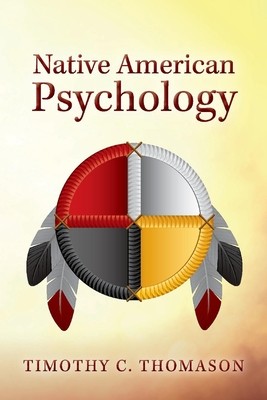| Native American Psychology Contributor(s): Thomason, Timothy C. (Author) |
|
 |
ISBN: 1098314077 ISBN-13: 9781098314071 Publisher: Bookbaby OUR PRICE: $20.69 Product Type: Paperback Published: August 2020 |
| Additional Information |
| BISAC Categories: - Psychology | Ethnopsychology |
| Physical Information: 0.9" H x 6" W x 8.9" (1.23 lbs) 350 pages |
| Descriptions, Reviews, Etc. |
| Publisher Description: The purpose of this book is to provide information that will help service providers understand the psychological concerns of Native Americans and provide effective counseling and psychotherapy for them. The book addresses a wide variety of topics, including assessment and diagnosis, culture-bound syndromes, best practices in counseling and psychotherapy, and related topics. Some chapters analyze how traditional healing methods work from a psychological perspective, and others consider the work of Carl Jung and Milton H. Erickson in relation to traditional Native American healing. Some of the chapters address conceptual and clinical issues, while others report the results of research by the author and others. The book contains many specific recommendations regarding how to provide culturally appropriate services for Native Americans. Native Americans hold a special position among the ethnic groups in the United States, because they were living on the North American continent thousands of years before any other people arrived. The Native population is extremely diverse, with 574 federally recognized sovereign tribal nations, 334 reservations and trust lands, and over a hundred different languages. Although most Native Americans live in urban, suburban, or non-reservation rural areas, about 22% live on tribal lands, where many of them live in housing without running water or electricity. While a description of the problems and challenges Native Americans face can be discouraging, the population also has many protective factors. Resources common to most Native American communities include strong family bonds, identification with tribal history and the local culture, spiritual beliefs, and respect for the wisdom of tribal elders. Given the history of how Native Americans have been treated, and present-day neglect by the government, they exhibit remarkable adaptability and resilience. There is a strong drive to promote the well-being of the group and a willingness to participate in many different ways of healing. Although the number of traditional Native healers is declining, they are still able to provide valuable services and are utilized by many Native Americans who live on or near tribal lands. This book reflects a personal and professional perspective on the topics discussed, based on many years of experience with Native people in Arizona and nationwide, but with no claim to speak for Native people. The recommendations made in this book draw on the professional literature on Native American psychology, the opinions of Native experts, and conceptual articles, literature reviews, and original research conducted by the author. It is hoped this book will make a modest contribution to the body of knowledge on this subject, with the ultimate goal of improving the psychological health of Native Americans. |